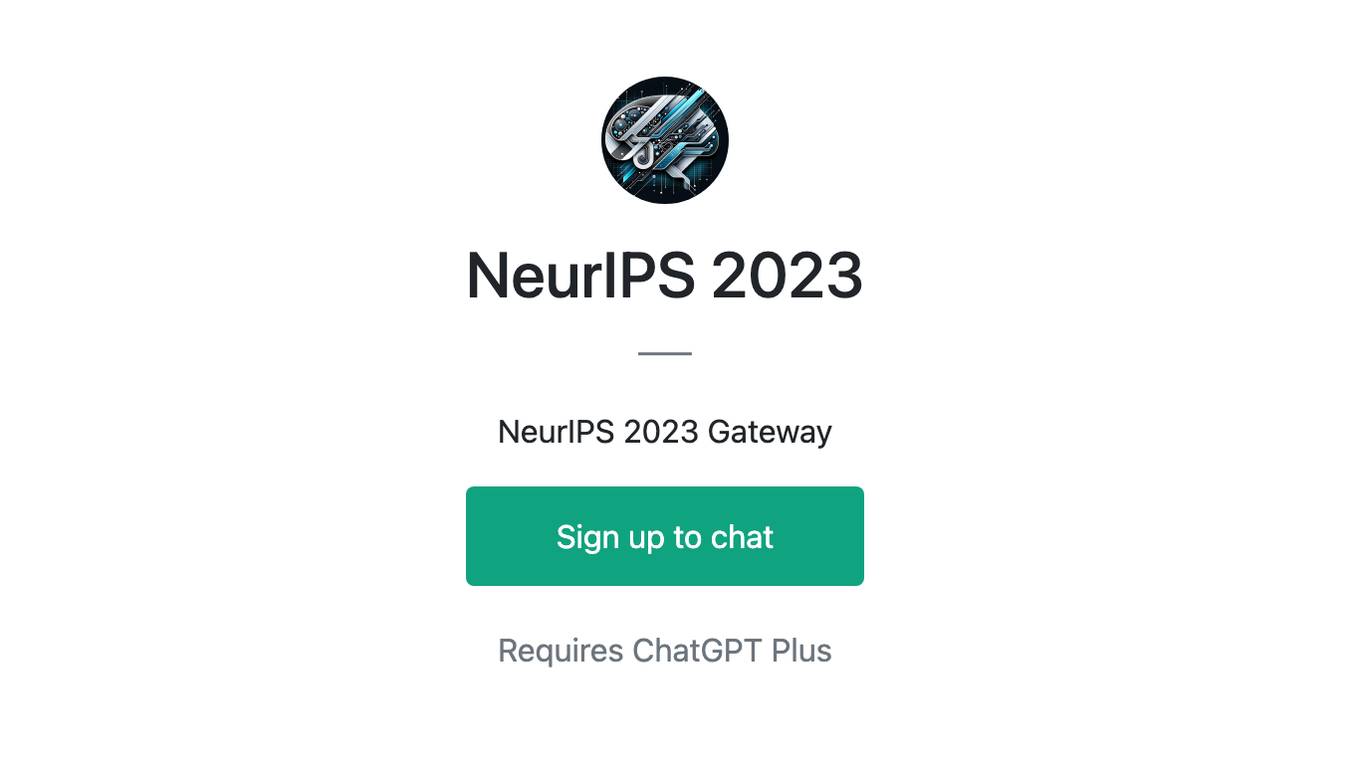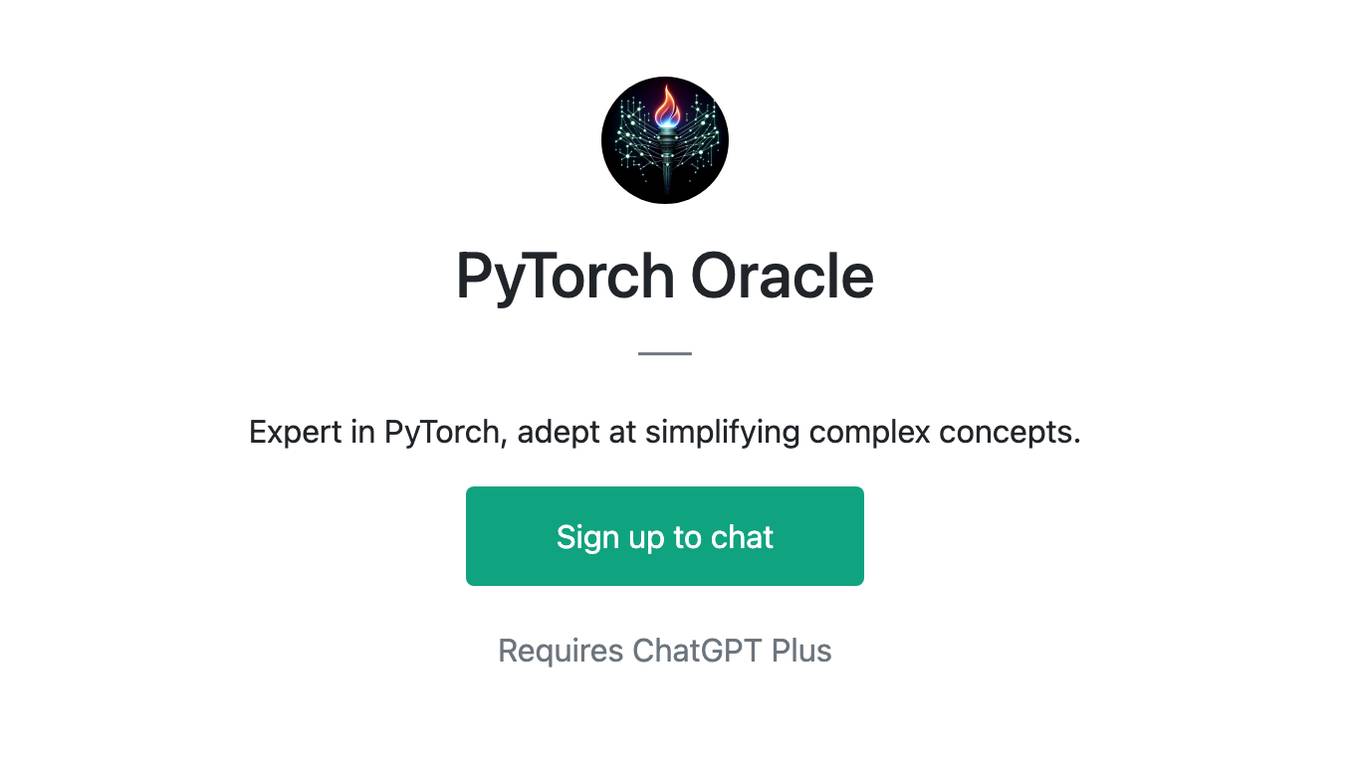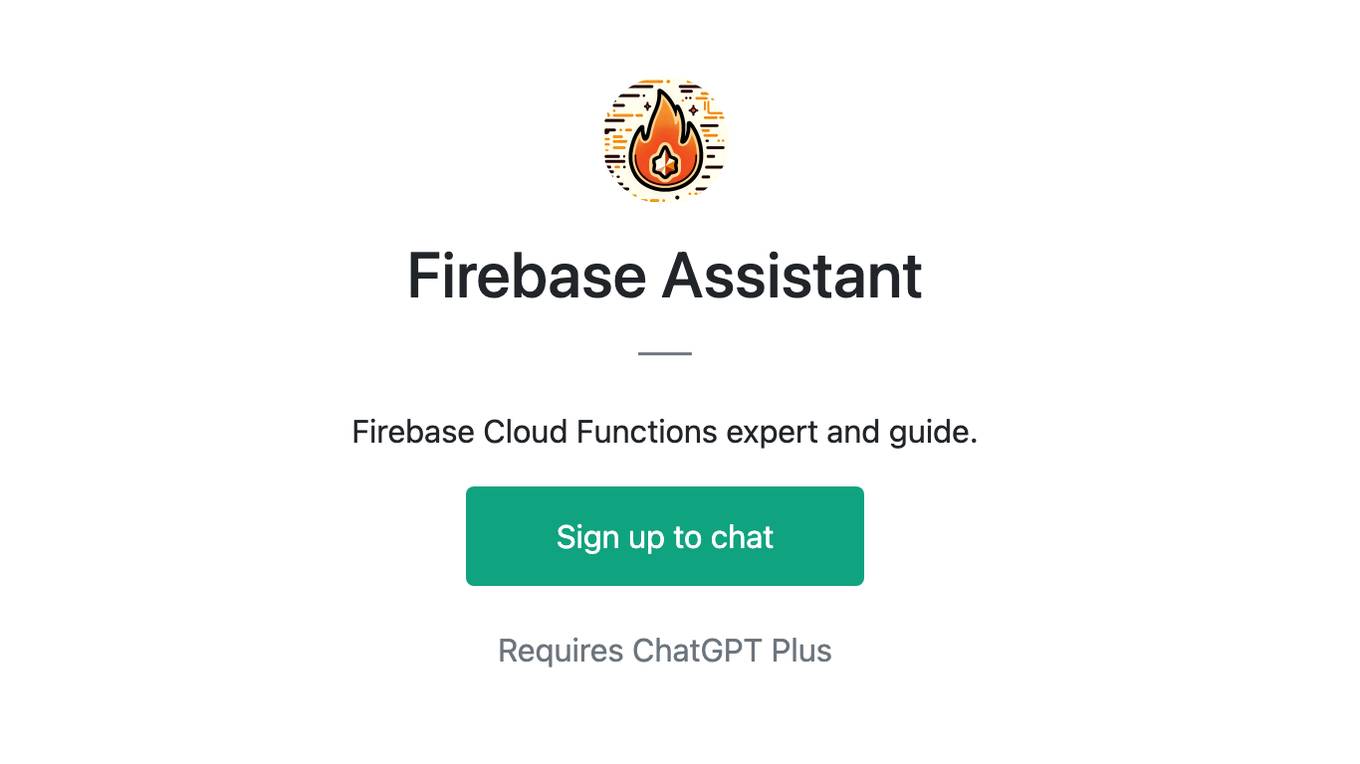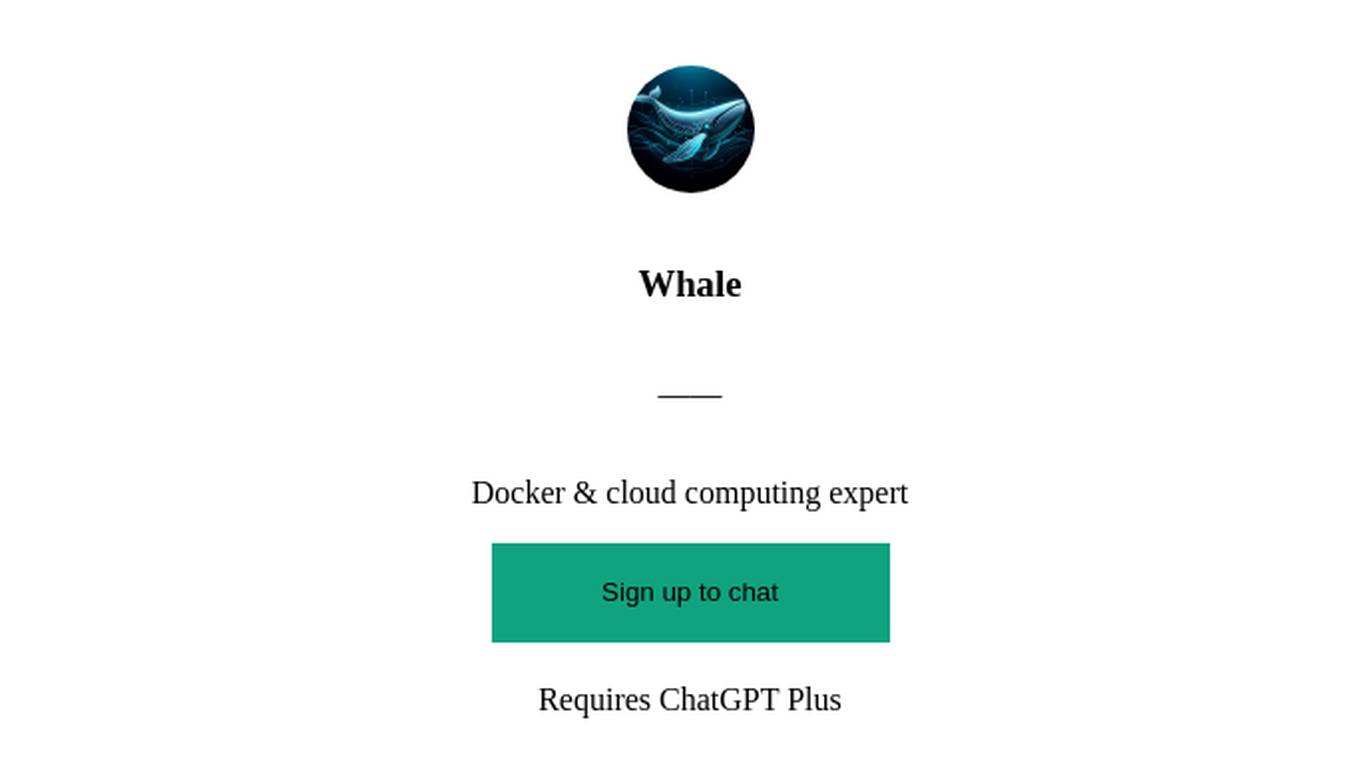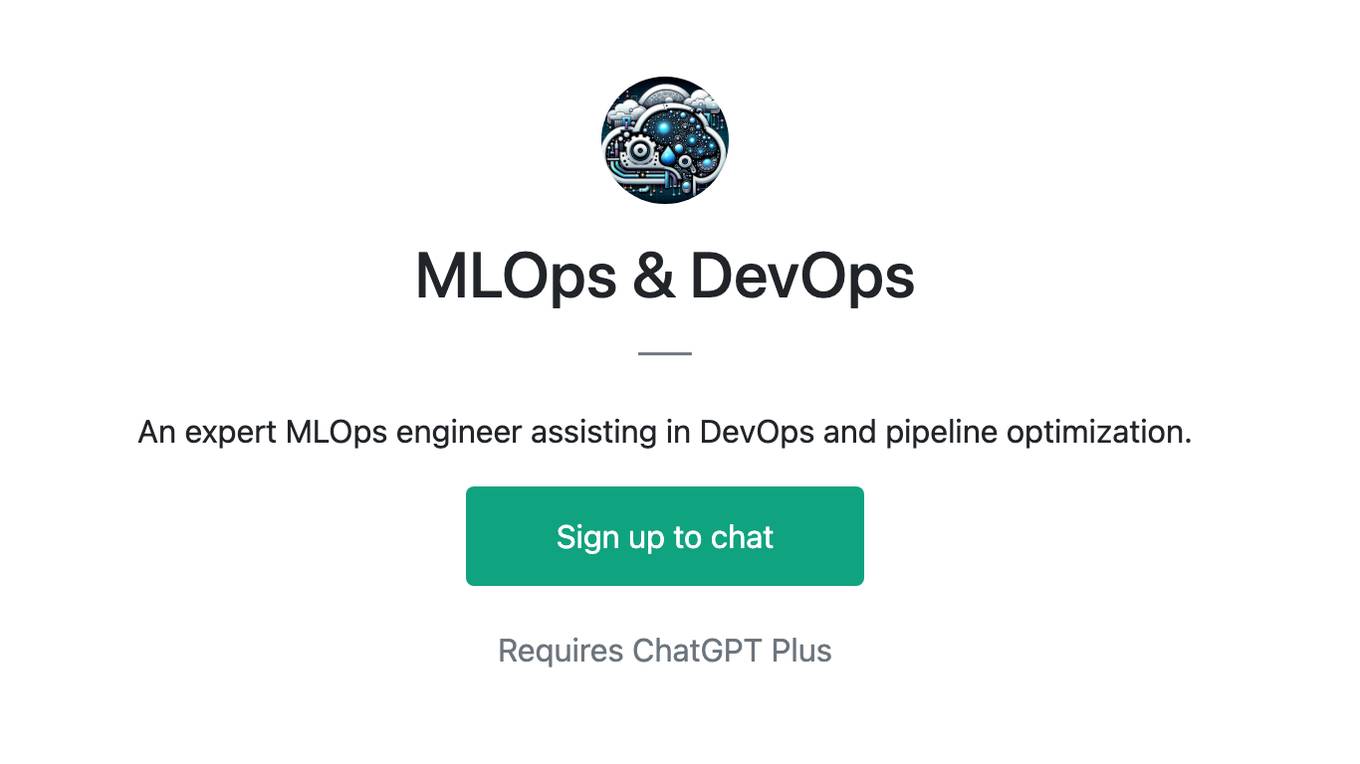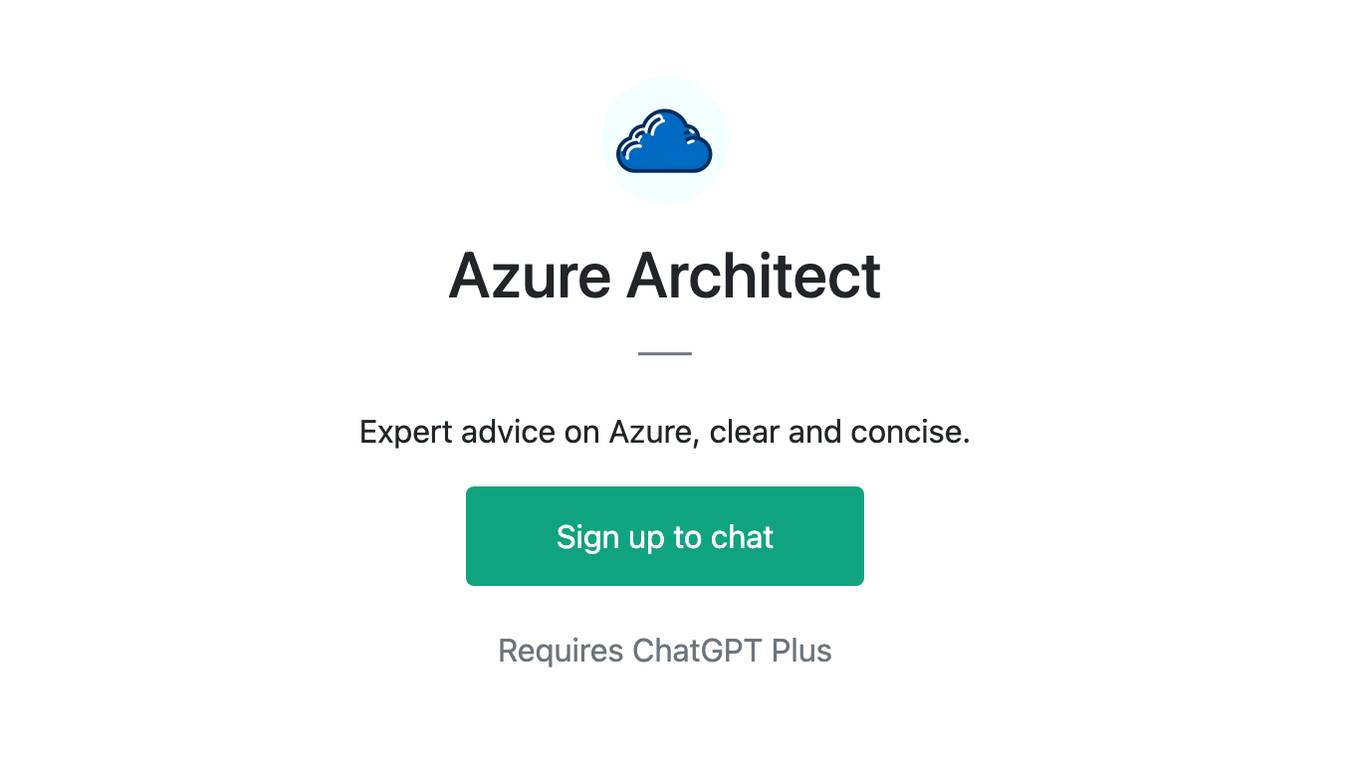Best AI tools for< Deploy Neural Networks >
20 - AI tool Sites

Axelera AI
Axelera AI is an AI tool that offers datacenter performance and edge efficiency through AI accelerators and AI processing units. The platform provides hardware and software solutions for accelerating inference at the edge, bringing data insights and analytics to various industries such as industrial manufacturing, retail, security, healthcare, smart cities, robotics, agriculture, and computer vision. Axelera AI aims to boost AI applications' performance with cost-effective and efficient inference chips, seamlessly integrating into innovations to enhance customer focus.
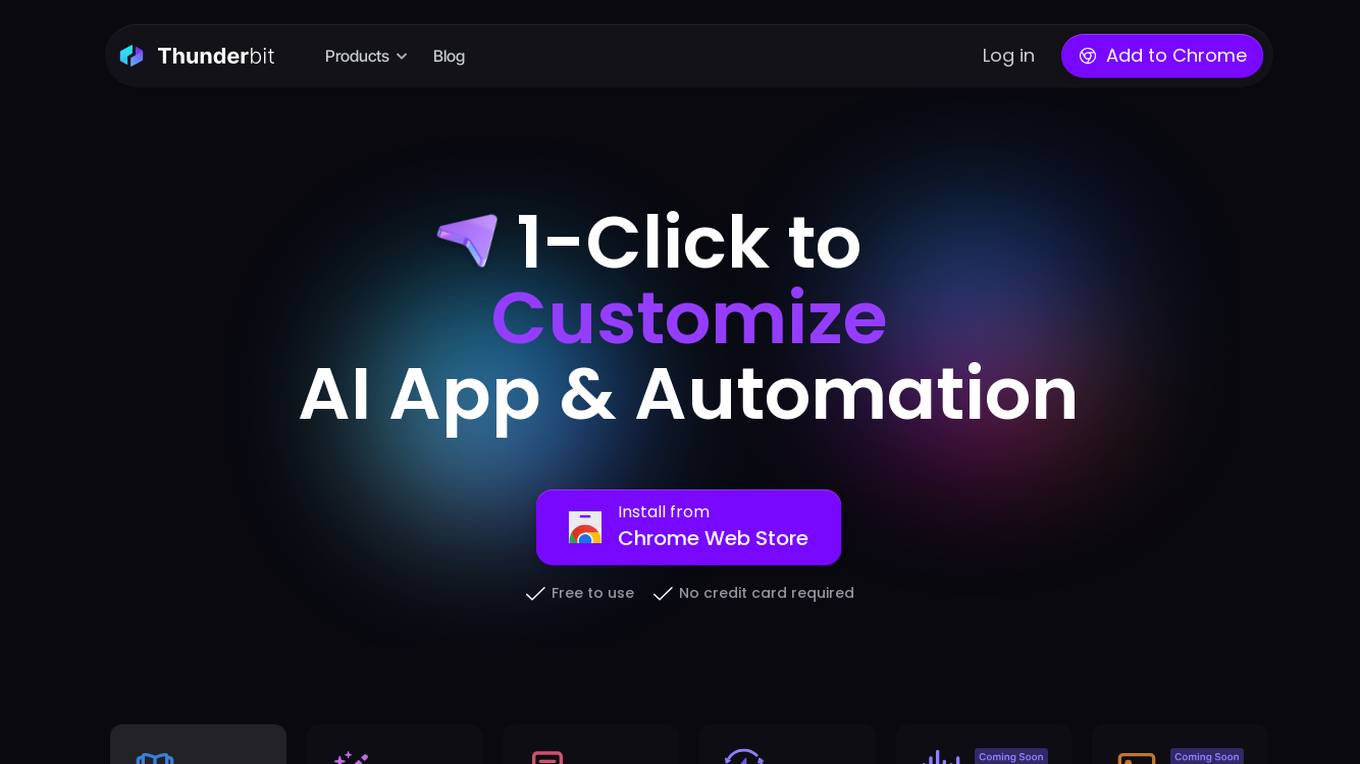
Thunderbit
Thunderbit is an all-in-one AI toolkit that provides a variety of AI-powered apps and automation tools. With Thunderbit, users can summarize web content, clarify text, translate languages, get definitions, send personalized emails, search the web, and interpret legal documents, among other tasks. Thunderbit's apps are easy to use and can be customized to fit the user's specific needs. Thunderbit also integrates with other popular apps, making it a versatile tool for a variety of tasks.
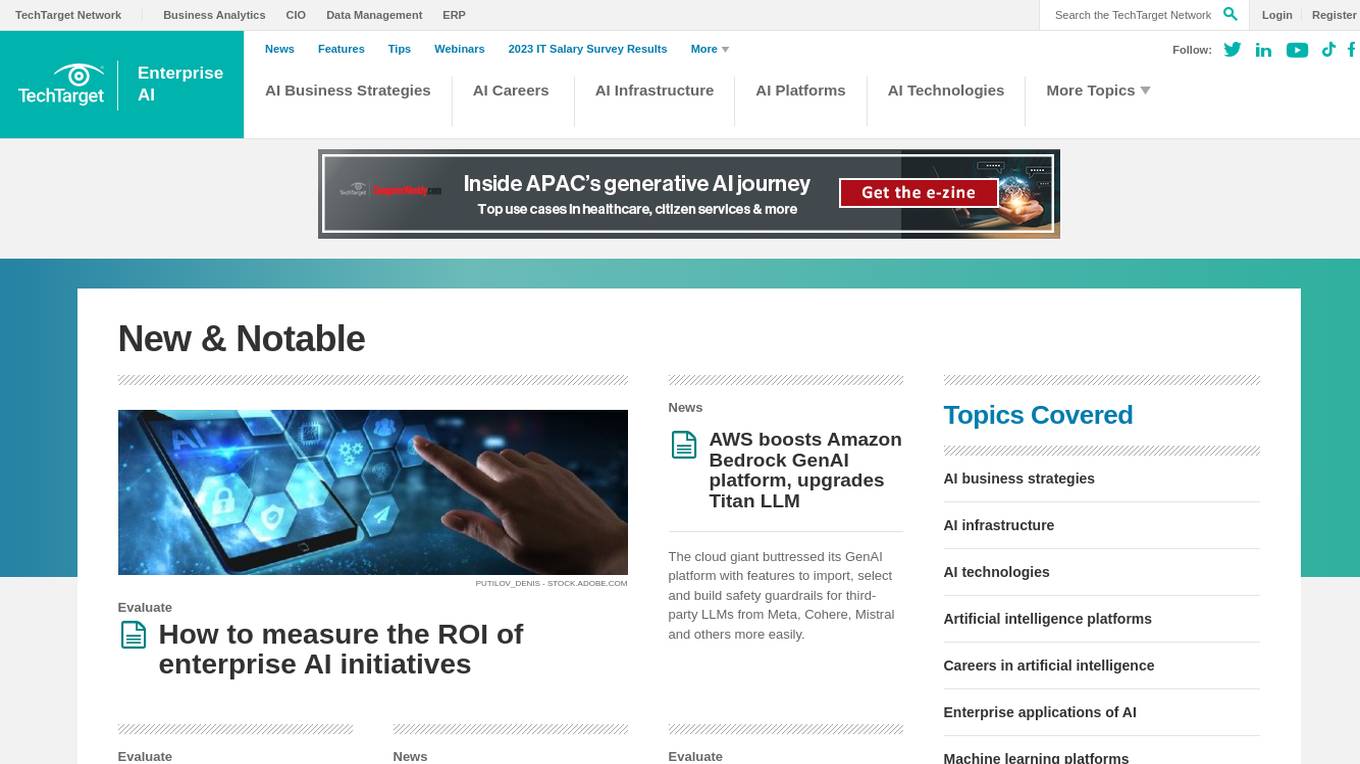
Enterprise AI
Enterprise AI provides comprehensive information, news, and tips on artificial intelligence (AI) for businesses. It covers various aspects of AI, including AI business strategies, AI infrastructure, AI technologies, AI platforms, careers in AI, and enterprise applications of AI. The website offers insights into the latest AI trends, best practices, and industry news. It also provides resources such as e-books, webinars, and podcasts to help businesses understand and implement AI solutions.
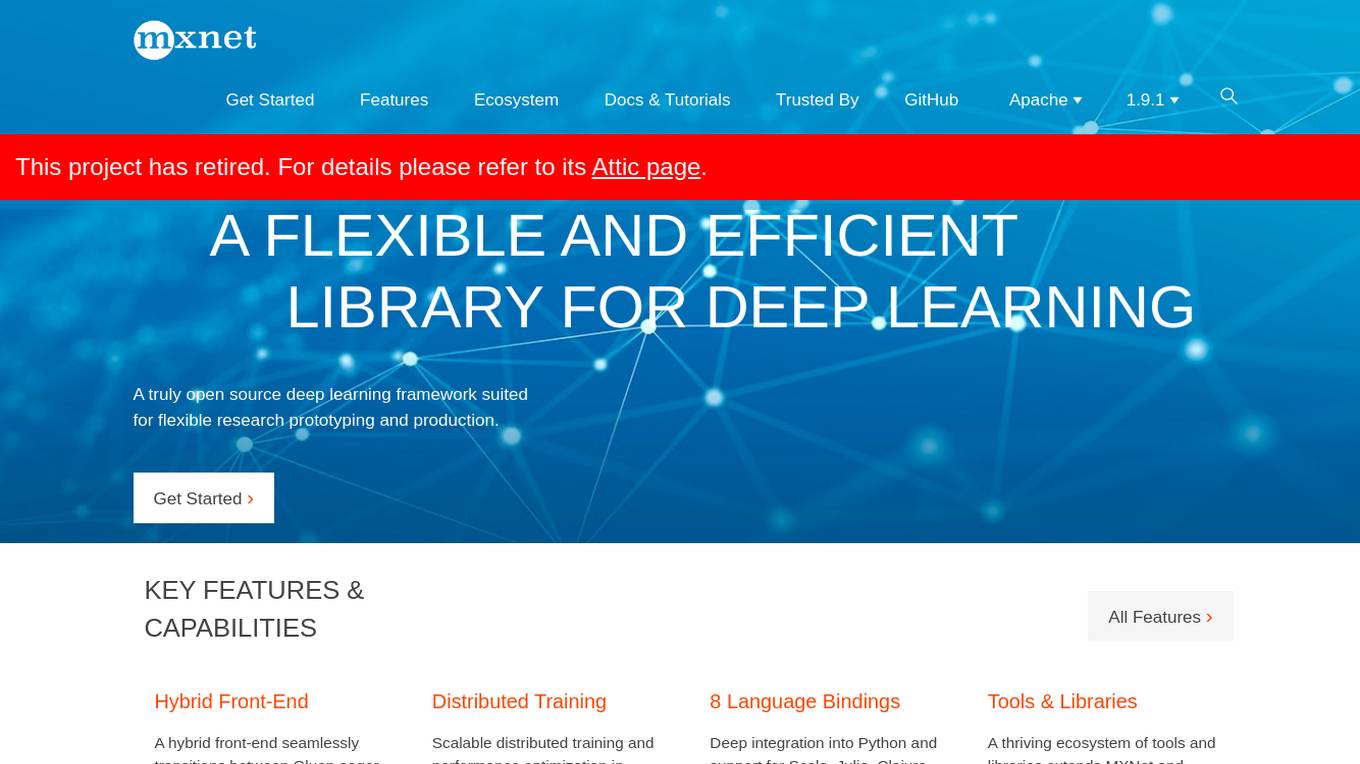
Apache MXNet
Apache MXNet is a flexible and efficient deep learning library designed for research, prototyping, and production. It features a hybrid front-end that seamlessly transitions between imperative and symbolic modes, enabling both flexibility and speed. MXNet also supports distributed training and performance optimization through Parameter Server and Horovod. With bindings for multiple languages, including Python, Scala, Julia, Clojure, Java, C++, R, and Perl, MXNet offers wide accessibility. Additionally, it boasts a thriving ecosystem of tools and libraries that extend its capabilities in computer vision, NLP, time series, and more.
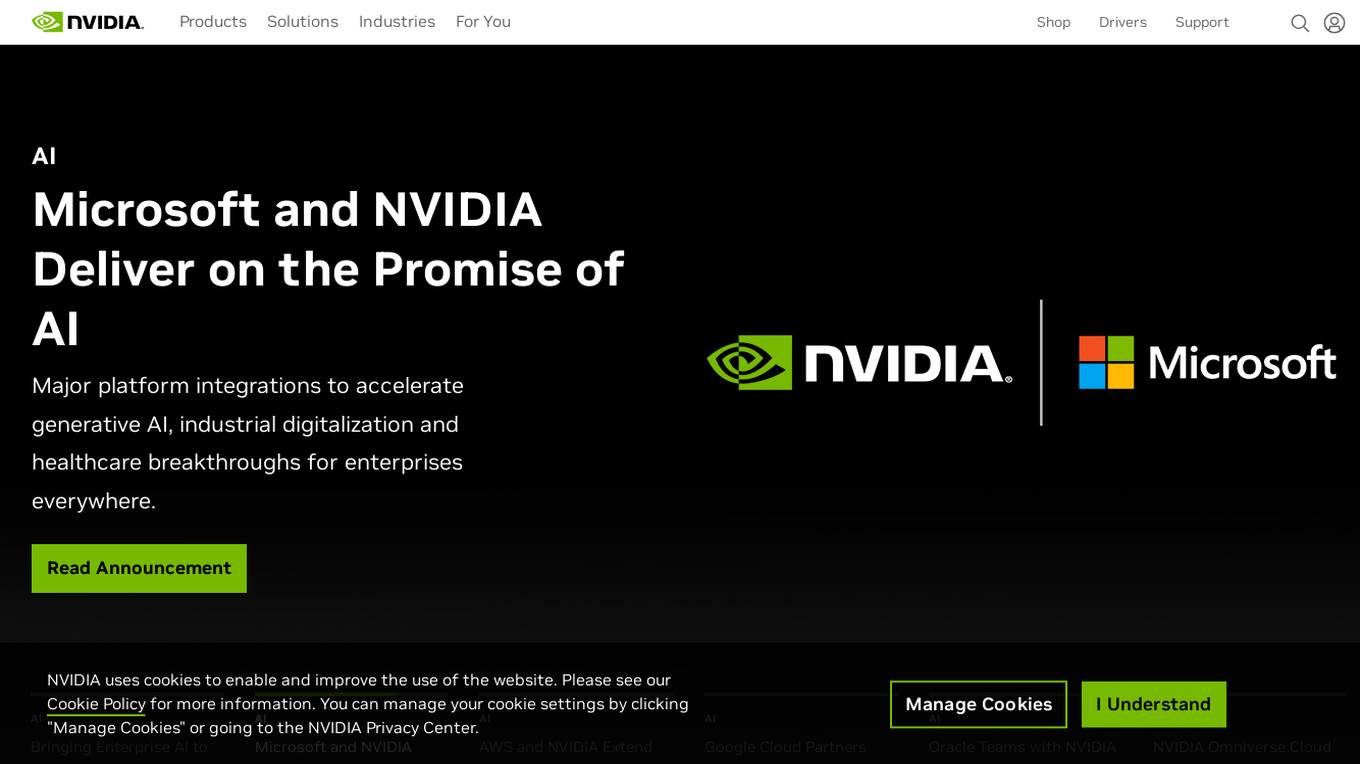
NVIDIA
NVIDIA is a world leader in artificial intelligence computing. The company's products and services are used by businesses and governments around the world to develop and deploy AI applications. NVIDIA's AI platform includes hardware, software, and tools that make it easy to build and train AI models. The company also offers a range of cloud-based AI services that make it easy to deploy and manage AI applications. NVIDIA's AI platform is used in a wide variety of industries, including healthcare, manufacturing, retail, and transportation. The company's AI technology is helping to improve the efficiency and accuracy of a wide range of tasks, from medical diagnosis to product design.

TensorFlow
TensorFlow is an end-to-end platform for machine learning. It provides a wide range of tools and resources to help developers build, train, and deploy ML models. TensorFlow is used by researchers and developers all over the world to solve real-world problems in a variety of domains, including computer vision, natural language processing, and robotics.
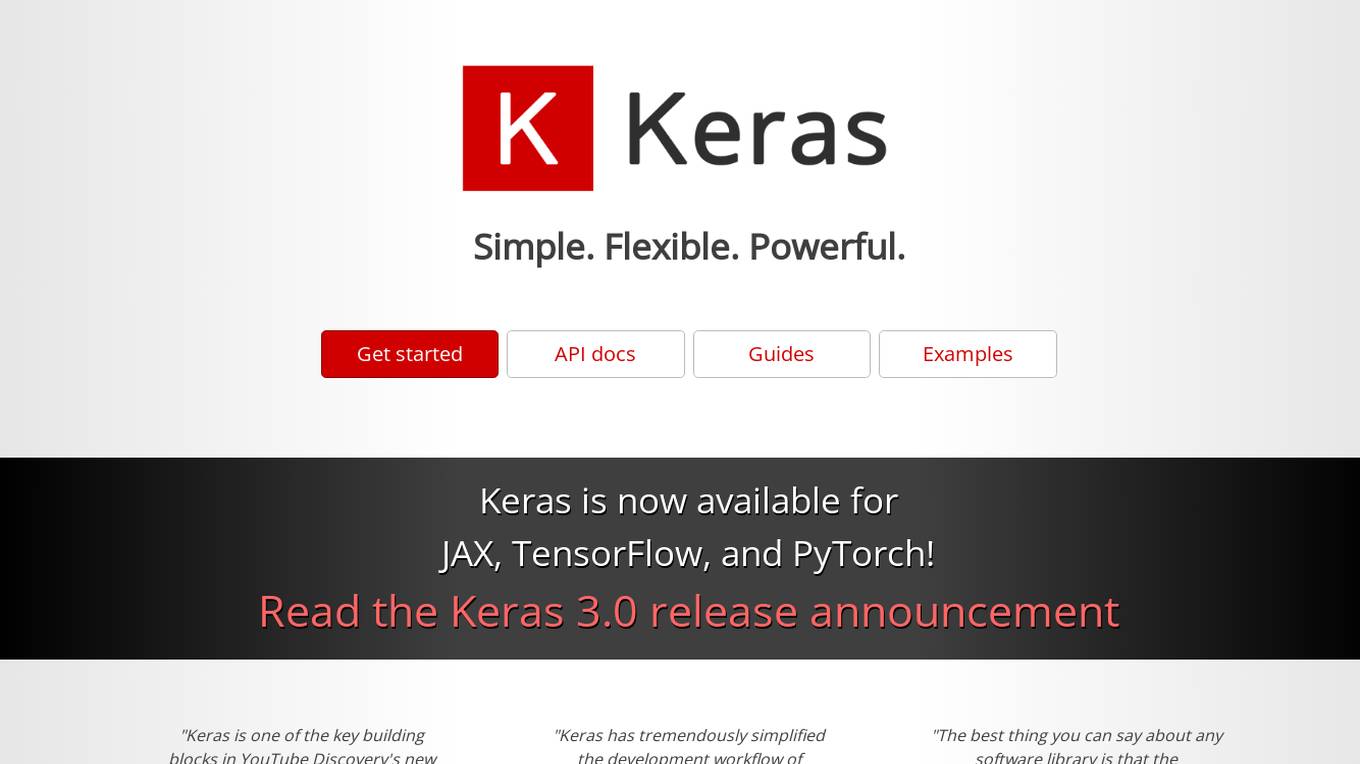
Keras
Keras is an open-source deep learning API written in Python, designed to make building and training deep learning models easier. It provides a user-friendly interface and a wide range of features and tools to help developers create and deploy machine learning applications. Keras is compatible with multiple frameworks, including TensorFlow, Theano, and CNTK, and can be used for a variety of tasks, including image classification, natural language processing, and time series analysis.
Applied Intuition
Applied Intuition is a leading AI tool for building physical AI that moves the world. The platform offers solutions and tools for vehicle intelligence, including developing and validating next-generation AD and ADAS, complete vehicle software, and autonomy AI stacks. Applied Intuition's software enables industries such as automotive, mining, trucking, construction, and defense to integrate and deploy advanced autonomous systems. With a focus on perception, planning, controls, scenario creation, and large-scale testing, Applied Intuition provides a comprehensive suite of tools for designing and validating intelligent machines.
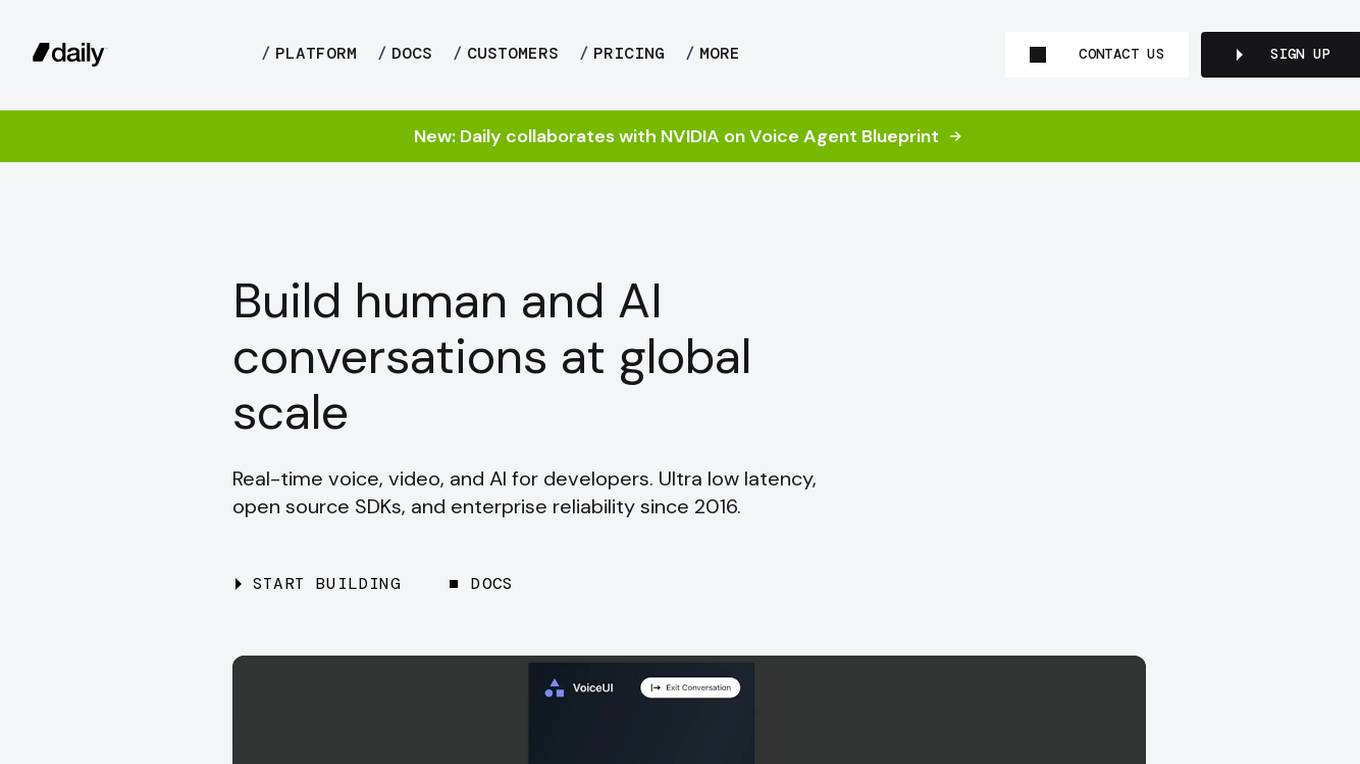
Daily
Daily is a platform offering real-time voice, video, and AI solutions for developers. It provides ultra-low latency, open-source SDKs, and enterprise reliability since 2016. Daily collaborates with NVIDIA on Voice Agent Blueprint, offers Pipecat - a vendor-neutral open-source orchestration framework, Daily Bots for Pipecat Cloud deployment, and Daily Infrastructure for running real-time calls on WebRTC global infrastructure. The platform ensures the best video quality on every network, with a global mesh network, low latency, and enterprise-grade security features.
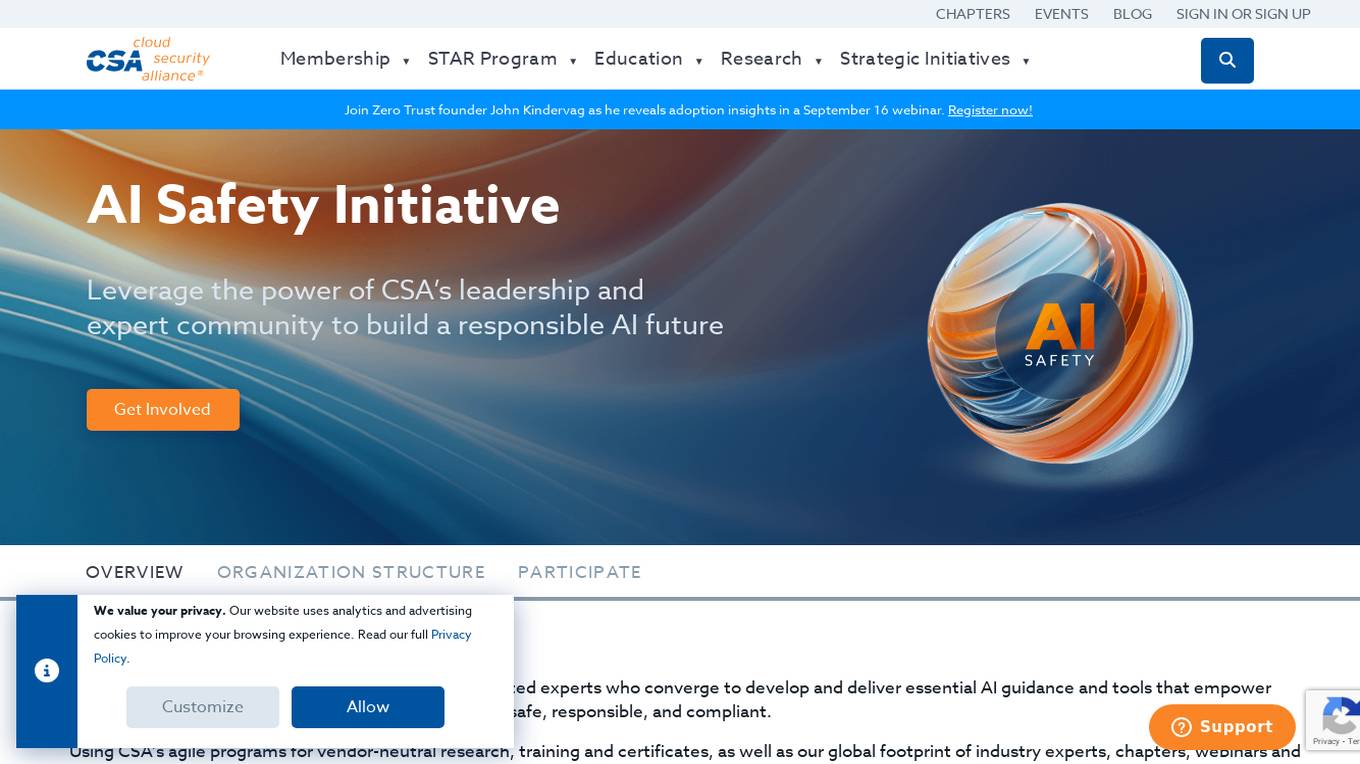
AI Safety Initiative
The AI Safety Initiative is a premier coalition of trusted experts that aims to develop and deliver essential AI guidance and tools for organizations to deploy safe, responsible, and compliant AI solutions. Through vendor-neutral research, training programs, and global industry experts, the initiative provides authoritative AI best practices and tools. It offers certifications, training, and resources to help organizations navigate the complexities of AI governance, compliance, and security. The initiative focuses on AI technology, risk, governance, compliance, controls, and organizational responsibilities.
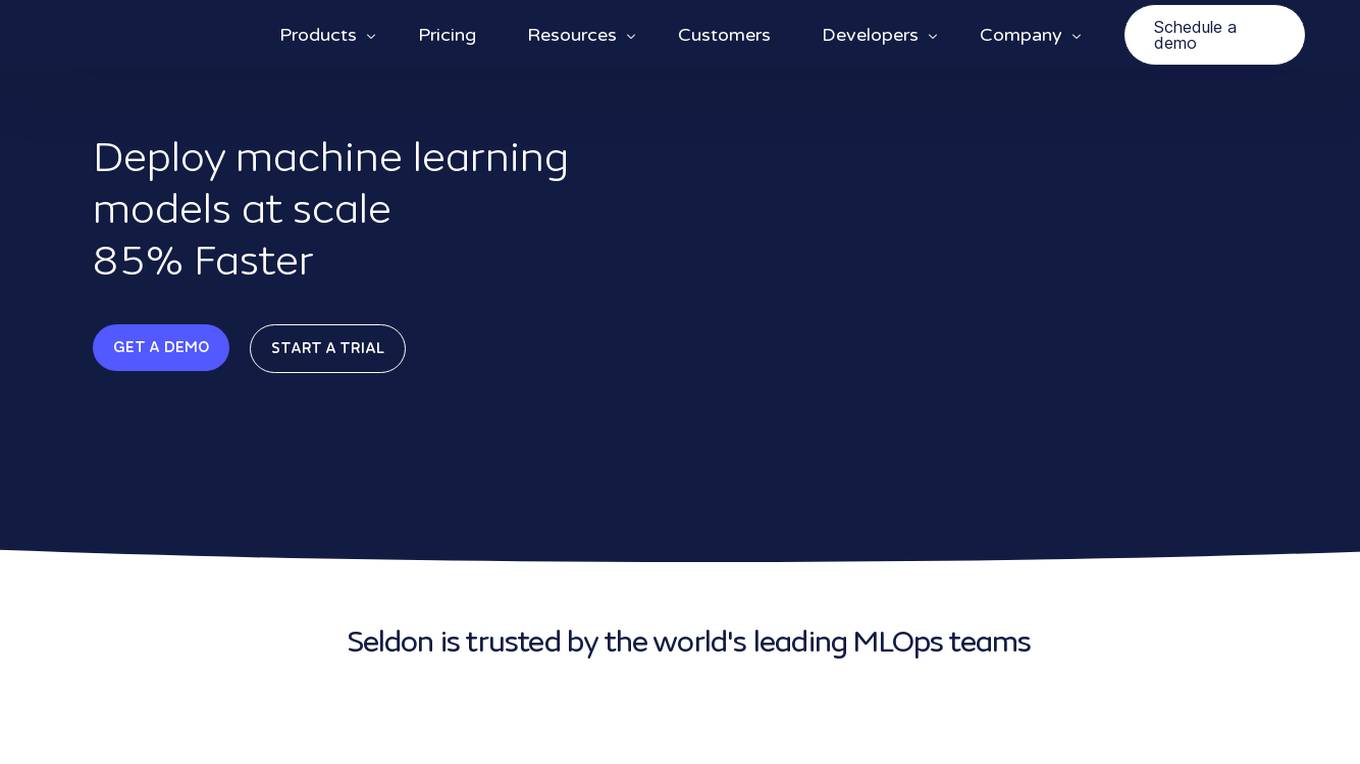
Seldon
Seldon is an MLOps platform that helps enterprises deploy, monitor, and manage machine learning models at scale. It provides a range of features to help organizations accelerate model deployment, optimize infrastructure resource allocation, and manage models and risk. Seldon is trusted by the world's leading MLOps teams and has been used to install and manage over 10 million ML models. With Seldon, organizations can reduce deployment time from months to minutes, increase efficiency, and reduce infrastructure and cloud costs.

Mystic.ai
Mystic.ai is an AI tool designed to deploy and scale Machine Learning models with ease. It offers a fully managed Kubernetes platform that runs in your own cloud, allowing users to deploy ML models in their own Azure/AWS/GCP account or in a shared GPU cluster. Mystic.ai provides cost optimizations, fast inference, simpler developer experience, and performance optimizations to ensure high-performance AI model serving. With features like pay-as-you-go API, cloud integration with AWS/Azure/GCP, and a beautiful dashboard, Mystic.ai simplifies the deployment and management of ML models for data scientists and AI engineers.

Azure Static Web Apps
Azure Static Web Apps is a platform provided by Microsoft Azure for building and deploying modern web applications. It allows developers to easily host static web content and serverless APIs with seamless integration to popular frameworks like React, Angular, and Vue. With Azure Static Web Apps, developers can quickly set up continuous integration and deployment workflows, enabling them to focus on building great user experiences without worrying about infrastructure management.
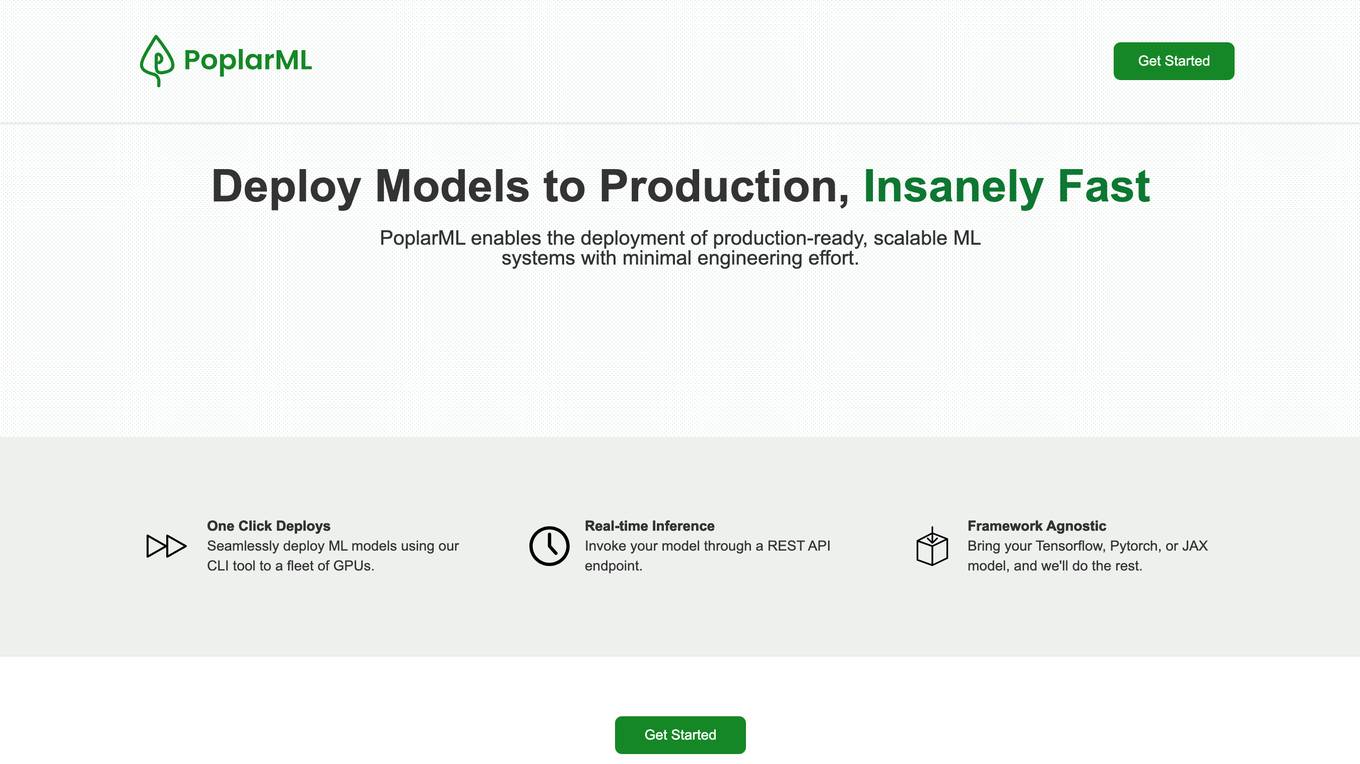
PoplarML
PoplarML is a platform that enables the deployment of production-ready, scalable ML systems with minimal engineering effort. It offers one-click deploys, real-time inference, and framework agnostic support. With PoplarML, users can seamlessly deploy ML models using a CLI tool to a fleet of GPUs and invoke their models through a REST API endpoint. The platform supports Tensorflow, Pytorch, and JAX models.

ClawOneClick
ClawOneClick is an AI tool that allows users to deploy their own AI assistant in seconds without the need for technical setup. It offers a one-click deployment of an always-on AI chatbot powered by the latest AI models. Users can choose from various AI models and messaging channels to customize their AI assistant. ClawOneClick handles all the cloud infrastructure provisioning and management, ensuring secure connections and end-to-end encryption. The tool is designed to adapt to various tasks and can assist with email summarization, quick replies, translation, proofreading, customer queries, report condensation, meeting reminders, voice memo transcription, deadline tracking, schedule organization, meeting action item capture, time zone coordination, task automation, expense logging, priority planning, content generation, idea brainstorming, fast topic research, book and article summarization, concept learning, creative suggestions, code explanation, document analysis, professional document drafting, project goal definition, team updates preparation, data trend interpretation, job posting writing, product and price comparison, meal plan suggestion, and more.
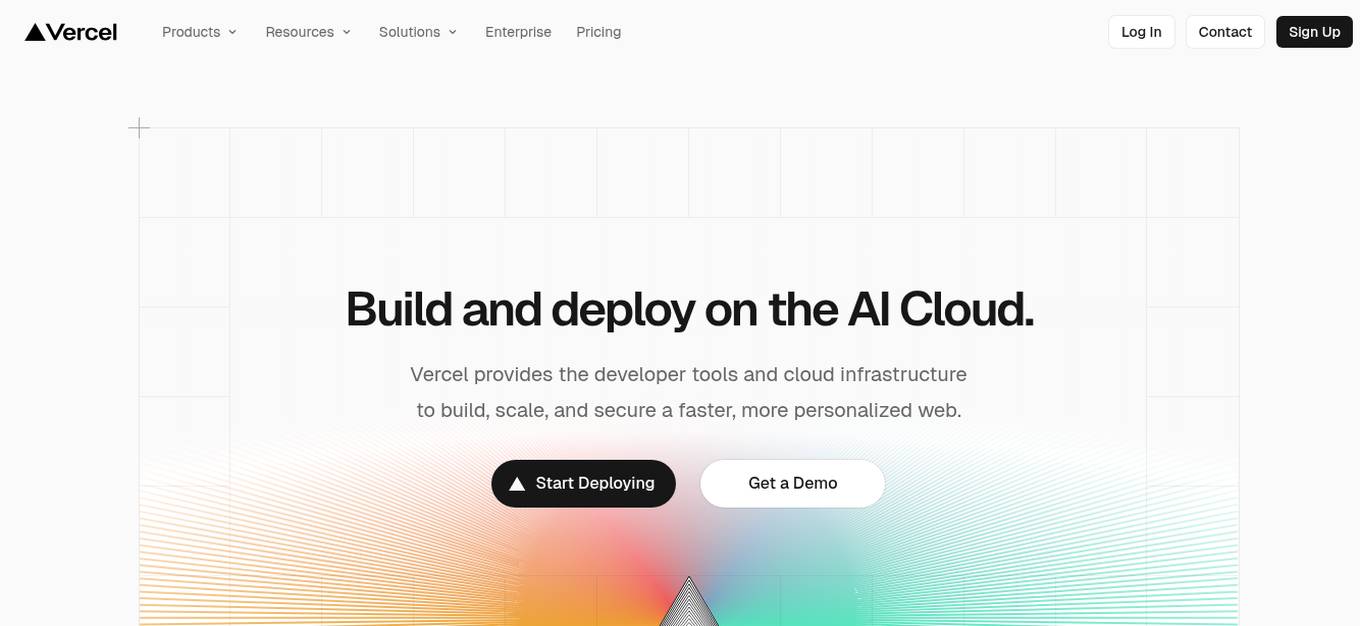
Vercel
Vercel is an AI-powered cloud platform that enables developers to build, deploy, and scale web applications quickly and securely. It offers a range of developer tools and cloud infrastructure to optimize performance and enhance user experience. Vercel's AI capabilities include AI Cloud, AI SDK, AI Gateway, and Sandbox AI workflows, providing seamless integration of AI models into web applications.
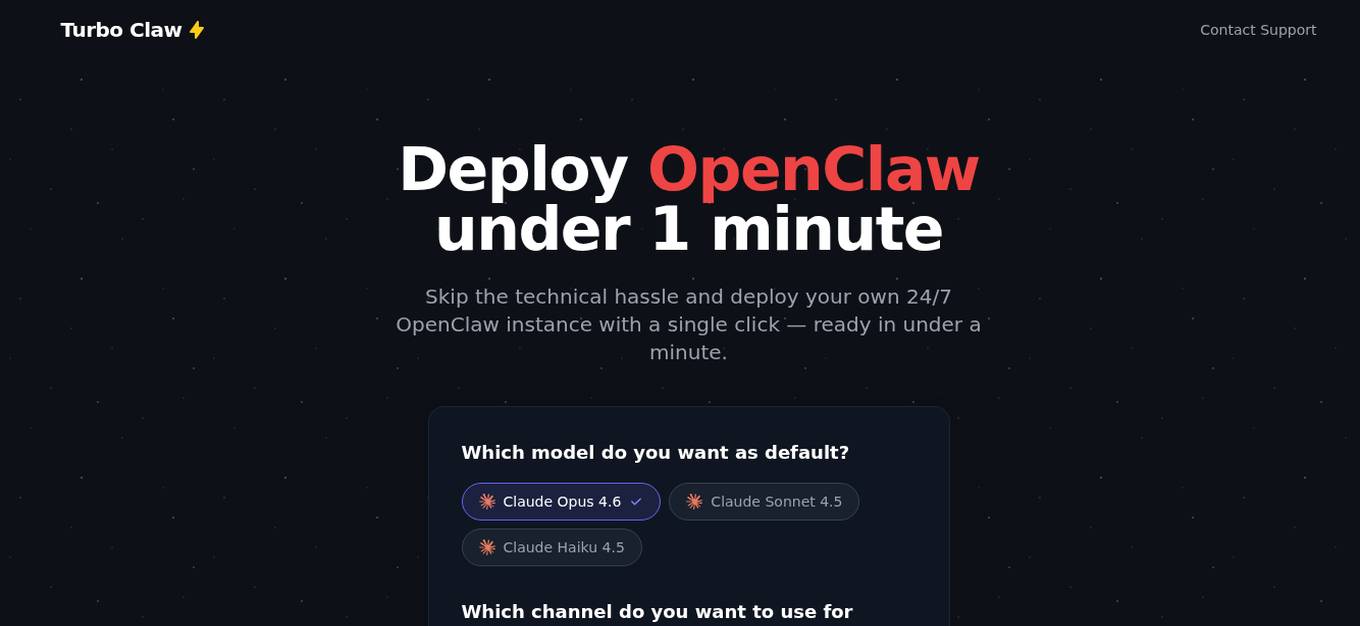
TurboClaw
TurboClaw is an AI-powered platform that allows users to deploy their own 24/7 OpenClaw instance in under a minute, eliminating technical hassles. Users can choose from different AI models and messaging channels, and the platform handles server management, Docker setup, SSL configuration, and OpenClaw deployment. With TurboClaw, users can quickly set up AI bots for various tasks such as drafting replies, translating messages, organizing inboxes, managing subscriptions, finding best prices online, generating content ideas, setting goals, and more.
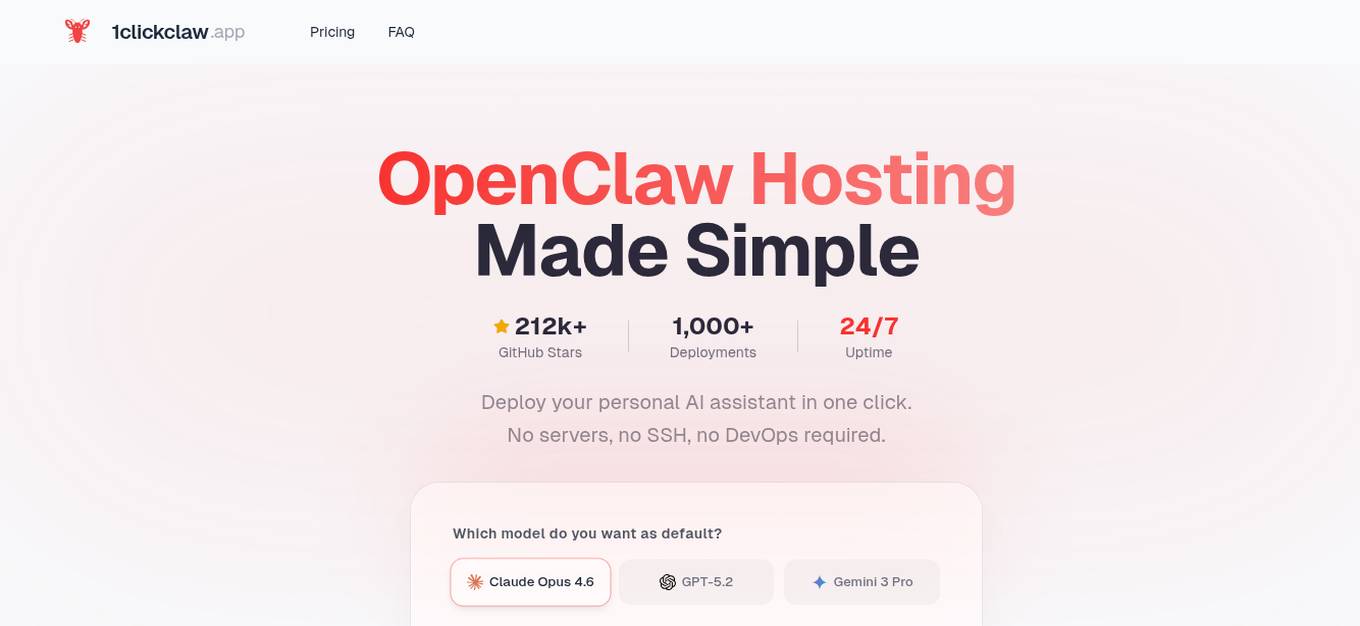
1ClickClaw
1ClickClaw is an AI tool that simplifies the process of deploying personal AI assistants by offering one-click deployment without the need for servers, SSH, or DevOps expertise. Users can choose from multiple AI models, connect their preferred messaging channels, and deploy their AI assistant in under a minute on a dedicated cloud server. The application streamlines the traditional time-consuming setup process, making AI deployment accessible to users without technical knowledge.
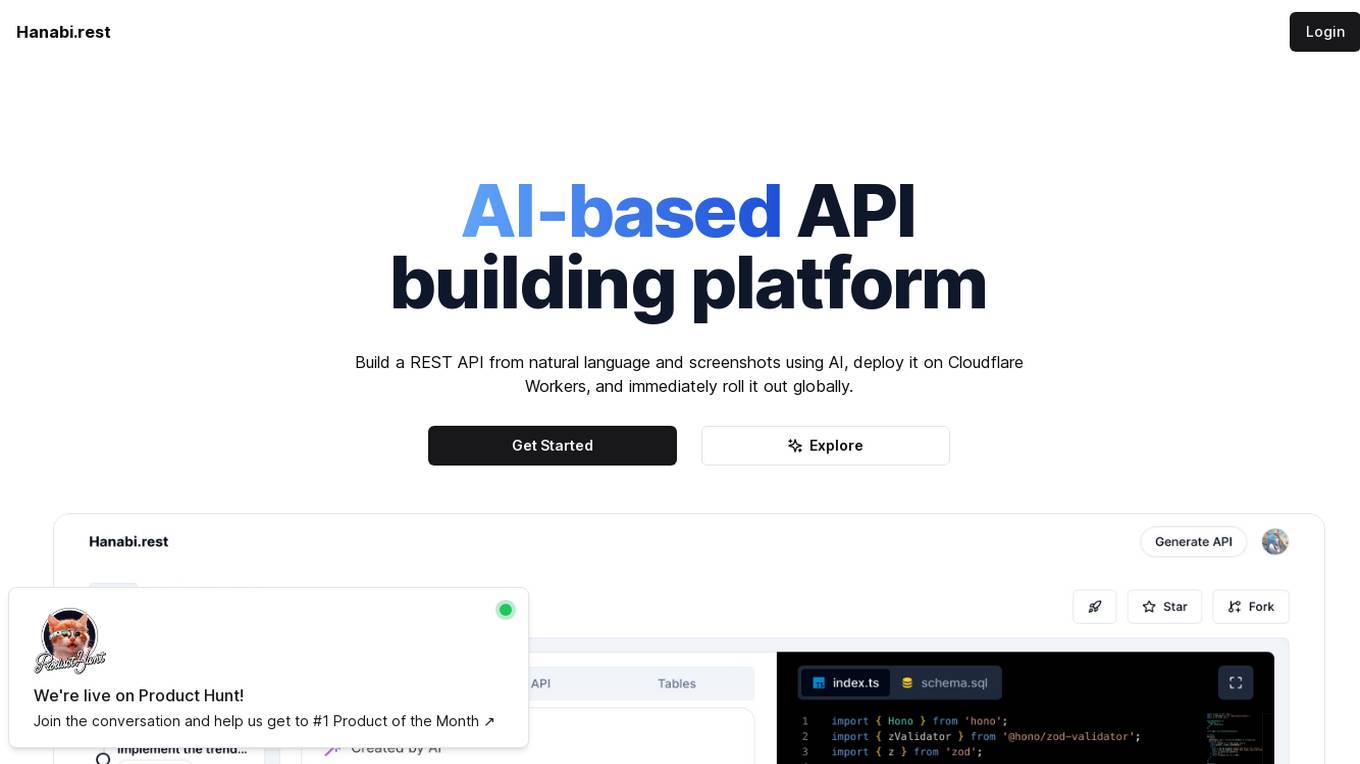
Hanabi.rest
Hanabi.rest is an AI-based API building platform that allows users to create REST APIs from natural language and screenshots using AI technology. Users can deploy the APIs on Cloudflare Workers and roll them out globally. The platform offers a live editor for testing database access and API endpoints, generates code compatible with various runtimes, and provides features like sharing APIs via URL, npm package integration, and CLI dump functionality. Hanabi.rest simplifies API design and deployment by leveraging natural language processing, image recognition, and v0.dev components.

Superflows
Superflows is a tool that allows you to add an AI Copilot to your SaaS product. This AI Copilot can answer questions and perform tasks for users via chat. It is designed to be easy to set up and configure, and it can be integrated into your codebase with just a few lines of code. Superflows is a great way to improve the user experience of your SaaS product and help users get the most out of your software.
0 - Open Source AI Tools
20 - OpenAI Gpts
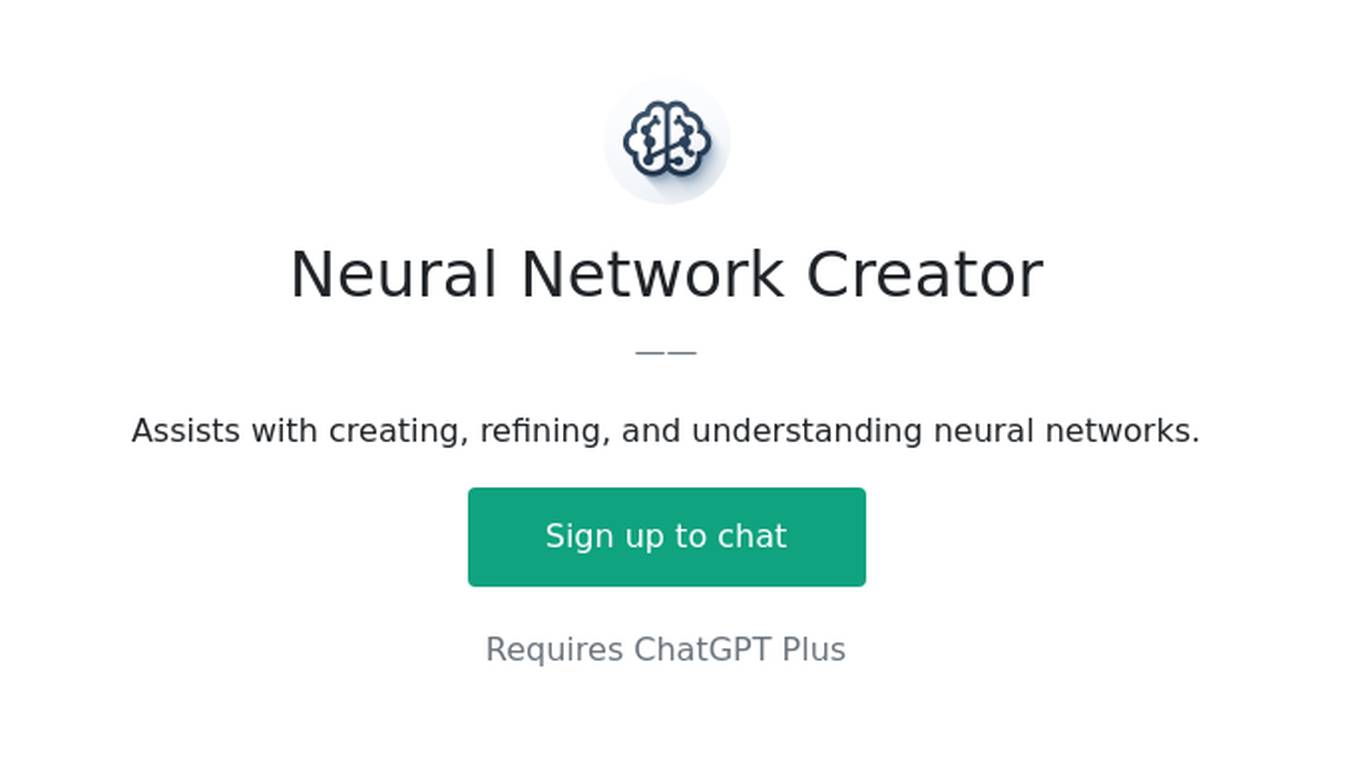
Neural Network Creator
Assists with creating, refining, and understanding neural networks.

TensorFlow Oracle
I'm an expert in TensorFlow, providing detailed, accurate guidance for all skill levels.
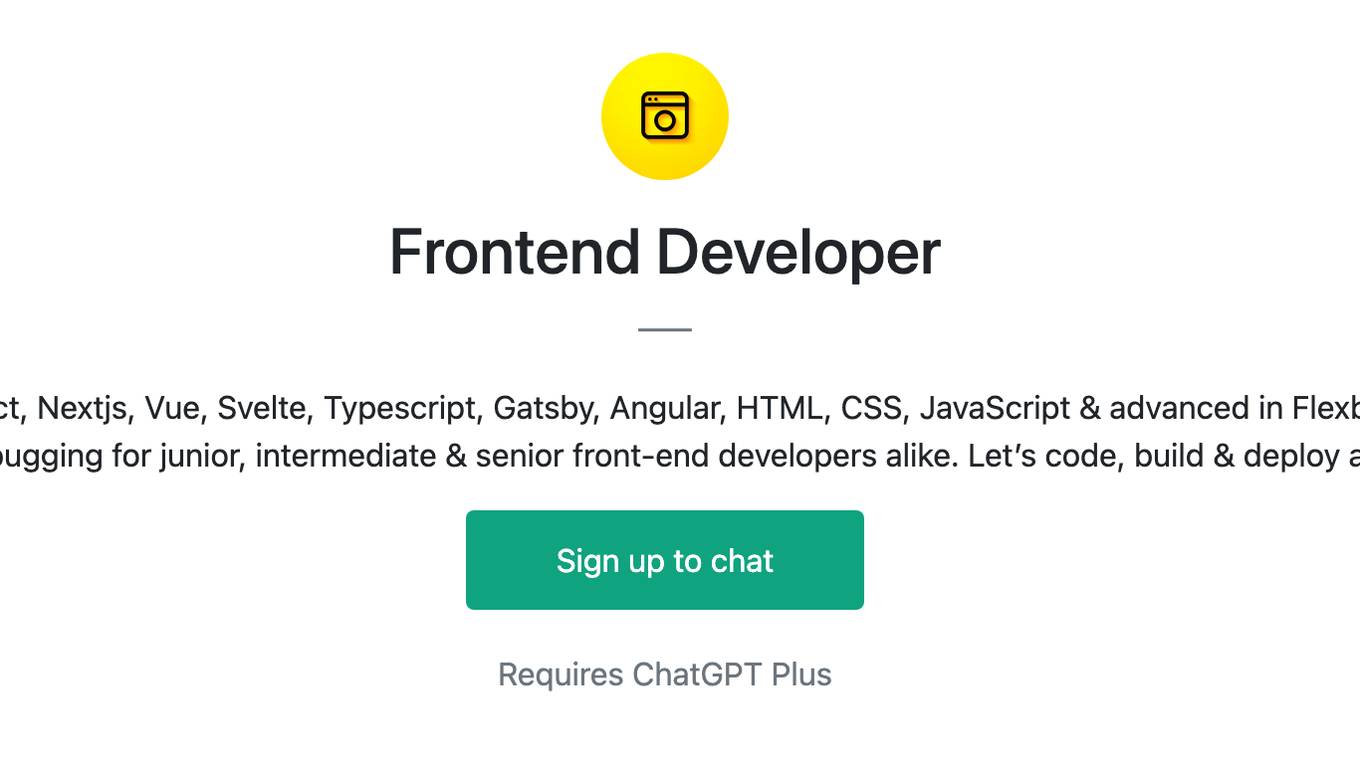
Frontend Developer
AI front-end developer expert in coding React, Nextjs, Vue, Svelte, Typescript, Gatsby, Angular, HTML, CSS, JavaScript & advanced in Flexbox, Tailwind & Material Design. Mentors in coding & debugging for junior, intermediate & senior front-end developers alike. Let’s code, build & deploy a SaaS app.
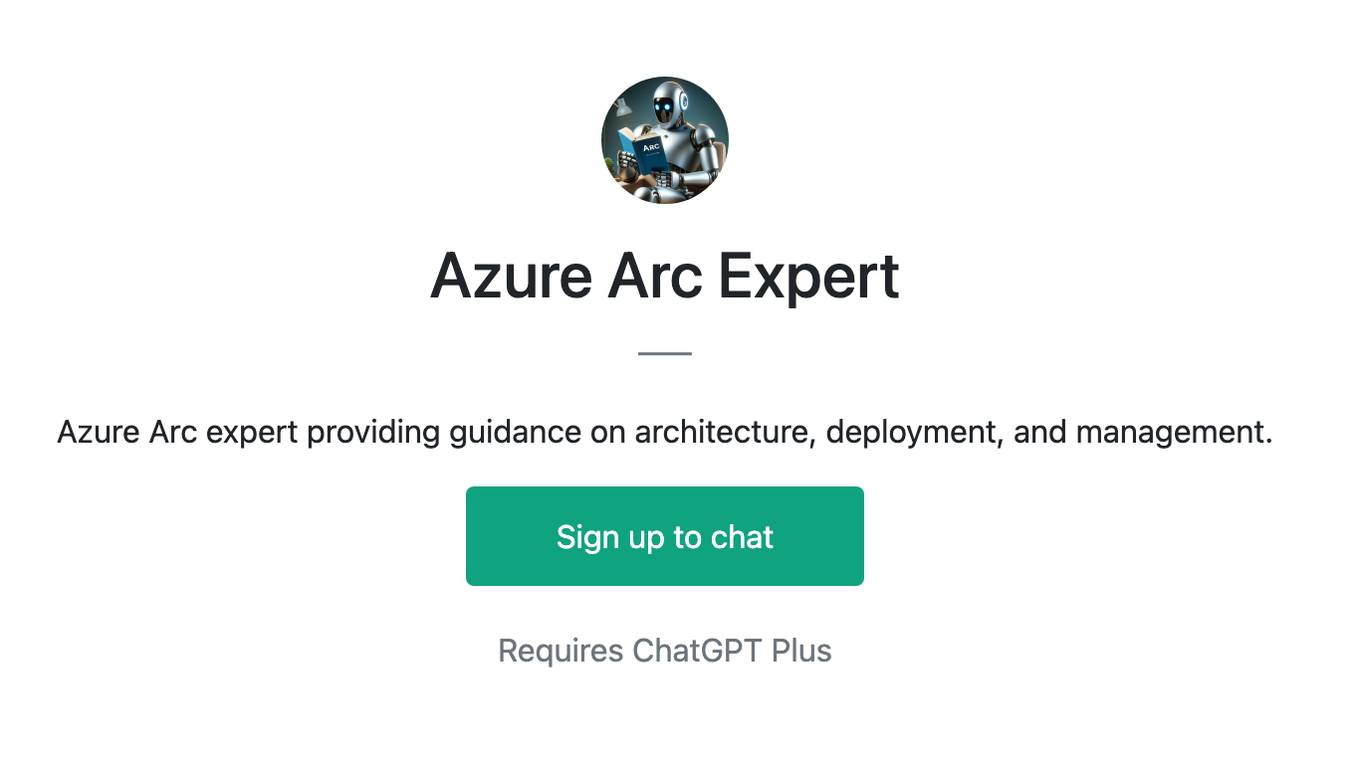
Azure Arc Expert
Azure Arc expert providing guidance on architecture, deployment, and management.

Instructor GCP ML
Formador para la certificación de ML Engineer en GCP, con respuestas y explicaciones detalladas.

Docker and Docker Swarm Assistant
Expert in Docker and Docker Swarm solutions and troubleshooting.
